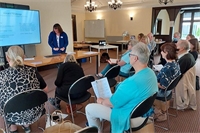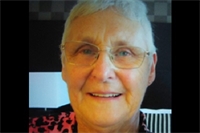16Mar
People with chronic pain and health providers build whanaungatanga (relationships) at wānanga
A project which brings consumers and health providers together to co-design a new model of care for people with chronic pain held a wānanga – a forum to observe, listen and learn – last month.
The wānanga was designed to build whanaungatanga (relationships), learn from each other and capture ideas about what type of support is needed for people living with chronic pain (long-term condition that often starts as an injury, accident, or illness) and their whānau.
The wānanga provided a safe space for consumers to share their journey through the health system.
“I’m grateful to the consumers and providers for sharing their stories throughout the project and at the wānanga, some of which were deeply personal and often extremely painful experiences,” said Project Manager Gareth Frew.
“They really made an impact that has set a strong sense of responsibility amongst those working on the project to improve the support that is offered to people with chronic pain.”
Consumer Lead Chelsea Skinner said she loves being a part of a project that is doing co-design authentically, with consumers at every stage, rather than a last-minute consideration.
“It has been rare in the chronic pain space to have everyone working together on a common goal,” says Chelsea.
“This co-design approach is not only about the destination, but also the journey. It also allows you to ask the question – ‘Who is not at the table?’ so that we are making sure everyone who needs to be involved in the project, is there from the start.”
Lincoln based General Practitioner Dr Jenny Lawrenson said the wānanga gave her hope that we can create a model that will reach more people in need and in an efficient and sustainable way.
“Whilst what I heard was no surprise, it was powerful to hear it directly from those involved and wonderful to discuss in person what we might be able to do,” says Jenny.
“To connect with clinician colleagues and hear their struggles and those of the consumer/patient was invaluable.”
“I would love to see a model that incorporates more community-based care so this community can access wraparound support earlier, and my tertiary colleagues who have invaluable skills and expertise can support people who really need their help.”
The project is using the Kia Kotahi Partnership in Design Framework, which is a values-based framework which ensures that people and their whānau are at the centre of designing equitable health services in a genuine and purposeful partnership.
What was heard at the wānanga is now being collated and the next step is to come together again to ensure everyone’s voices were heard and captured accurately and focus on whakaritenga (develop ideas and new directions through alternative thinking) and tuhituhinga (form and plan solutions together) for a revised model of care for Chronic Pain.
About the Author
Related

Members from a range of Canterbury’s health consumer groups connected face-to-face last month, in t...
Read More >

Last month, the Minister of Health released a code of expectations outlining how Te Whatu Ora and ot...
Read More >

Long-standing Community Respiratory Service volunteer Pauline Mohi was acknowledged by the respirato...
Read More >